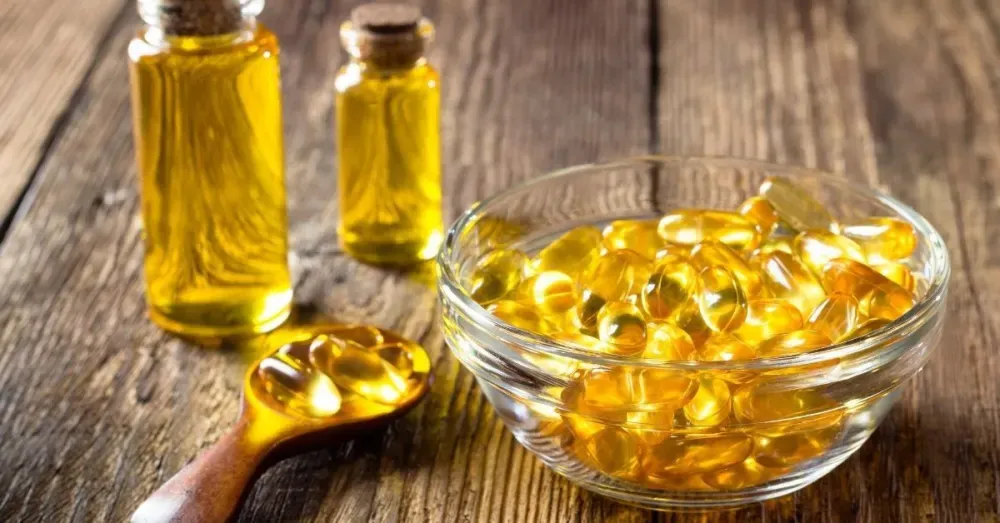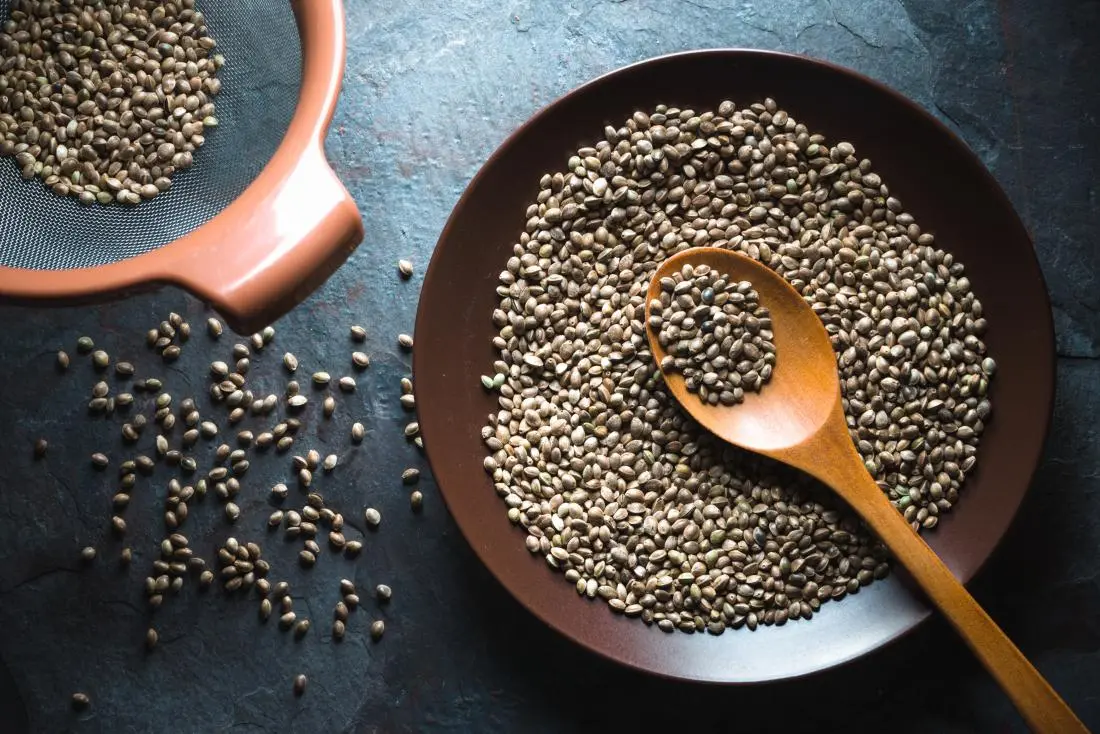You have heard about the miraculous benefits of fish oil. With every passing day, researchers are discovering more. A recent study (2021) from the medical magazine Menopause depicts – the benefits of consuming Omega 3 fatty acids in easing menopause symptoms in women. But in today’s times, harvesting oily fish is no small task – both financially and environmentally. Also, many people are shifting towards following a plant-based diet. So, what is the vegan alternative to fish oil?
This write-up will respond to your query. This content has been curated according to the World Medical Council guidelines on consuming Omega 3 fatty acids (primary content of fish oil) and seeking the services of a registered dietician. So, let’s kill the fluff and educate ourselves, shall we?
Table of Contents
Why is fish oil so crucial?
Omega 3 is a polyunsaturated fatty acid that benefits the cardiovascular, endocrine, and pulmonary systems and enhances the body’s immunity levels. A 2020 review also shows – how it benefits the brain and alleviates depression and attention deficit disorder. This prevents heart attacks, autoimmune deficiencies, and neurodegenerative issues (Alzheimer’s).
Your sardines and mackerels with docosahexaenoic(DHA) and eicosapentaenoic (EPA) acids save your medical bills. But what if you have a vegan or plant-based diet? Here is the alternative to fish oil that provides you the alpha-linolenic acid (ALA) – (omega 3 is a blend of all three acids). Let’s get to the truth
What is the vegetarian alternative to fish oil?
Now jumping straight to the query – what are the available vegetarian alternatives? There are plenty –
1. Chia Seeds
These have recently come into the limelight for their extensive nutritional profile. Apart from being high in protein and fiber content, they are enriched with phosphorus, calcium, and magnesium – the critical contents of a better health system. Low in calories – they are a rich source of ALA fatty acids (even more than salmons).
For the record – every 1-oz serving has – 5.0555 grams of ALA.
How to have it? If you are looking for an effective weight-loss strategy – you can soak them in water overnight and drink it the following day.
Else, you can also spread it on salads, or mix them in smoothies or fruit juices.
2. Flax Seeds
For the unacquainted – flax is a food crop primarily housed in cooler zones of the world. Flaxseed oil or flaxseeds is an excellent alternative to fish oil, given that they are loaded with ALA fatty acids. They are also enriched with – protein, magnesium, manganese, and fiber.
For the record – every tablespoon contains – 6.073 grams of ALA.
How to have it? You can always incorporate flaxseeds into your daily oatmeal or cereal breakfast. Spread it on your salads for a better taste
3. Hemp Seeds
Another from the seeds group – this plant-based substitute to fish-oil comes with dual fatty acid content (Omega 6 infused Linolenic acid and Omega 3 infused ALA). This also has – magnesium, zinc, iron, and protein, which have their own set of positives for the body.
For the record – This also has Vitamin E content which is essential for cell regeneration. It also helps recover after a heart attack – by reducing blood clot formation. For every 3 tablespoons of hemp seeds, you intake 2.605 grams of ALA.
How to have it? The best way to have this is by spreading it on your smoothie or yogurt.
4. Algae – Seaweed
Yes, we understand that you are a vegetarian soul looking for a vegetarian alternative to fish oil. Be assured – seaweed and algae are part of multiple cuisines, and you do not harm the environment when you consume them.
Apart from ALA – they also contain both EPA and DHA, which are typically not found in other plant-based alternatives. Also, they are fused with protein and have anti-diabetic, anti-hypertensive, and anti-oxidant properties.
How to have it? Nori is a type of seaweed that is used in sushi. You can add spirulina and chlorella to your smoothies.
When you want a change – you can always have algal oil gel capsules before returning to smoothies.
5. Brussels Sprouts
This is one of the vegetables that have been making waves as an addition to the plant-based Omega 3 fatty acid list. As a cruciferous vegetable that lowers the risk of heart ailments by 16% (as per research), this is also infused with Vitamin C, K, and fiber.
How to have it? You can have it in the roasted form or include it in salads.
6. Walnuts
If you are a fan of nuts, walnuts are another alternative to fish oil. They also have healthy fats that help improve brain health and manage cholesterol levels.
For the record – Per cup (standard 250 ml) of walnuts contains 3.346 grams of ALA.
How to have it? You may have them solo (a mid-breakfast munchie) or add them to your breakfast cereal, yogurt intake, and salad.
7. Canola Oil
Another substitute to fish oil – this is derived from rapeseed plants and is infused with Omega 3 and 6 fatty acids and monosaturated fats. Therefore, it is one that protects your heart from multiple ailments.
How to have it? This is to be used for cooking purposes. Just note the amount you are using since this oil is high in calories.
8. Kidney Beans
Whether you have it as a curry or add it to your salads – kidney beans are one of the alternative to fish oil. Along with protein and fat content – this is also fused with Omega 3 fatty acids that add to the ALA content in your body.
For the record – Every half cup has 0.10 grams of ALA.
How to have it? They are cooked with rice or come as side dishes. Add them to your curries or stew for best results.
9. Wheat Germ
This part of the wheat grain is enriched with Omega 3 fatty acids, acting as a plant-based substitute for fish oil. Along with that, it is fortified with – folate, unsaturated fat, magnesium, phosphorus, thiamine, and Vitamin E.
For the record – One standard (250 ml) cup of wheat germ has 6.91 grams of ALA.
How to have it? It is used in muffins, pancakes, and smoothies.
10. Soybean Oil
Another oil that helps build up Omega 3 fatty acid in your body, and that too keeping it fish-free, is – soybean oil. Both soybean and soybean oil are two of the most popularly consumed legumes and oils that are steeped with Vitamin B2 and K, apart from potassium and folate.
For the record – 1 tablespoon of soybean oil contains 0.92 grams of ALA.
How to have it? Soybean oil is used regularly for cooking in countries like – China, the USA, Argentina, and Brazil. As far as soya beans are concerned – they are used as curries, in rice preparations, and in salads.
What about fortified food products?
The food products mentioned above are the vegetarian list of alternative to fish oil. However, some food products are fortified with Omega 3 fatty acid elements. They are – eggs, bread, yogurt, milk, fruit juices, butter, margarine spreads, and baby food (consult your pediatrician first). You may regularly consume them for a healthier body.
Just so that you know
As you already know that Omega 3 fatty acids come as a combination of ALA, EPA, and DHA. What is more important is that – this combination makes up for 40% of grey matter and is a crucial component of the body. But, ALA – until converted to the DHA or EPA format is of no help. Also, the conversion rate is at a maximum of 5%! Therefore – plant-based alternative to fish oil is also an essential part of your dietary intake.
What is their recommended dietary intake?
As per most dieticians and a rough estimate provided by the World Medical Council – 500mg to 1000mg of DHA and EPA is recommended for an adult. For babies and teenagers – you must consult the doctors. However – if you consume oily fish 3-4 times per week, you are covered.
Take home message
You have already understood how Omega 3 fatty acids benefit the body’s functioning. Luckily, for those who do not consume the entire orchestra of seafood, these mentioned alternative to fish oil could be of great help. If you have fish-oil supplements, you may forgo these named products (consult your medical practitioner). Self-medication for fish-oil supplements is strictly forbidden.
If you have any queries related to plant-based alternatives to fish oil, you can revert to this page.
Monalisa Mukherjee is a content writer, copywriter and editor with 4 years of experience. She has written for websites like Biography Talk, The Rich Net Worth, Contour Cafe, He And She Fitness and Fiction Pad. She is currently associated with a noted Digital Marketing Agency and specialises in writing press release, guest posts, articles on travel, entertainment, food recipes, celebs, lifestyle, tech, health, and fashion.








